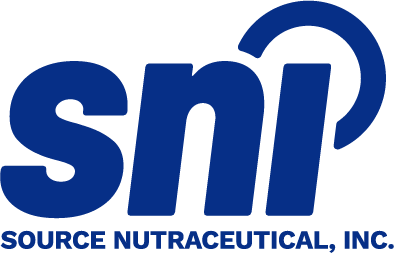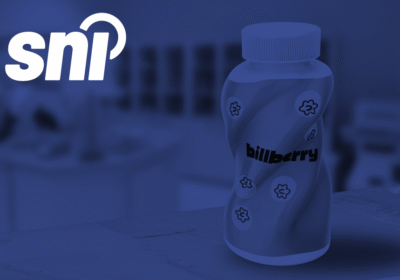With a projected U.S. market size of over $300 billion by 2030, the dietary supplement category has never presented more opportunities for brand success.
In a health-conscious society, dietary supplements can play a significant role in supporting individuals' well-being, but the growing popularity of these supplements has brought attention to the regulatory challenges and pitfalls that manufacturers may face.
Dietary Supplement Violations and How to Avoid Them
In the United States, the dietary supplement industry is governed by the Dietary Supplement Health and Education Act (DSHEA), but violations still persist.
We wanted to shed some light on a five common dietary supplement violations in the USA and explore the importance of adherence to regulations for consumer safety.
Select one of the magnifying glasses below or scroll down to learn more insights on these common violations:

Violation 1: Mislabeling and Noncompliant Claims
One common violation in the dietary supplement industry is mislabeling in the manner of non-compliant claims. Some companies may cross the line and use drug claims for dietary supplement products in the US. Such practices mislead consumers and compromise their ability to make informed decisions about the supplements they choose.
FDA Warning Letter Example:
This is to advise you that the United States Food and Drug Administration (FDA) has reviewed your company’s websites [withheld] in October 2023 and your company’s marketing materials for [withheld], which contains instructions on where to buy your product.
Based on the statements on your website and your marketing materials, your product is an unapproved new drug and unlicensed biological product that you introduced or delivered for introduction into interstate commerce in violation of the Federal Food, Drug, and Cosmetic Act (FD&C Act) [21 U.S.C. § 331(d)] and the Public Health Service Act (PHS Act) [42 U.S.C. § 262(a)(1)].
 How can SNI help?
How can SNI help?
Claims must be substantiated using clinical evidence, specific to the ingredient(s), dose, and dosage form. Our team can ensure that claims are in line with the claim language permitted by DSHEA (Dietary Supplement Health and Education Act) to prevent mislabeling of your product. We can also assist with literature searches and reviews to analyze available research relevant to your ingredients and claims. It is important for product owners to keep a substantiation package on file in the case that evidence is requested by the FTC (Federal Trade Commission) or the FDA (Food and Drug Administration), and you must notify the FDA, within 30 days of first sale, in order to compliantly make a structure/function claim on your label.
In the case that sufficient evidence cannot be obtained through public sources, the team at SNI will assess your ideal claims and population of interest and can advise you on the right study design and endpoints that will give you the best chance at success.

Violation 2: Contamination, Adulteration, and Lack of Specifications
Contaminated or adulterated supplements pose a serious risk to consumers' health. This violation occurs when supplements contain undeclared ingredients, allergens, or contaminants such as heavy metals, pesticides, or microbial organisms. These substances can have adverse effects, especially on individuals with allergies or sensitivities. Product specifications must be established for the finished product, to verify that the product contains what it claims to.
FDA Warning Letter Example:
You failed to, for each dietary supplement that you manufacture, establish product specifications for the strength and composition of the finished batch of the dietary supplement, as required by 21 CFR 111.70(e). Specifically, the finished product specification sheet for the dietary supplement finished product failed to include specifications for the strength and composition of each ingredient in the finished product.
You failed to confirm that the components you use meet the limits you have established on the types of contamination that may adulterate or lead to adulteration of the finished batch of the dietary supplement, as required by 21 CFR 111.75(a)(2).
You rely on supplier COAs that do not include test results for the contamination limits you have established, as required by 21 CFR 111.75(a)(2)(ii)(B).
How can SNI help?
We can ensure that your product complies with the FDA’s regulatory requirements—from safety and quality to manufacturing and labeling. We can assist you in creating product specifications that will ensure your products meet the regulatory test requirements for Dietary Supplements established in 21 CFR Part 111.

Violation 3: Failure to Establish Good Manufacturing Practices (GMP)
The Food and Drug Administration (FDA) requires dietary supplement manufacturers to adhere to Good Manufacturing Practices (GMPs) to ensure product quality, purity, and consistency. Violations of GMP can result in substandard products, increasing the risk of contamination and compromising the overall safety and efficacy of the supplements.
FDA Warning Letter Example:
You failed to establish BPRs* that satisfy the requirements of 21 CFR 111.255(b) and 111.260. Specifically, the BPRs were missing the following:
- The date and time of the maintenance, cleaning, and sanitizing of the equipment and processing lines used in producing the batch, or a cross-reference to records, such as individual equipment logs, where this information is retained [21 CFR 111.260(c)];
- A statement of the actual yield and a statement of the percentage of theoretical yield at appropriate phases of processing [21 CFR 111.260(f)];
- The actual results obtained during any monitoring operation [21 CFR 111.260(g)];
- The results of any testing or examination performed during the batch production, or a cross-reference to such results [21 CFR 111.260(h)];
- Documentation that the finished dietary supplement meets specifications established in accordance with § 111.70(e) and (g) [21 CFR 111.260(i)];
- Documentation, at the time of performance, of the manufacture of the batch, including [21 CFR 111.260(j)]
- The date on which each step of the MMR was performed [21 CFR 111.260(j)(1)];
* Batch Production Records
 How can SNI help?
How can SNI help?
Our Team can review your batch records and determine whether they are compliant with the FDA requirements for Good Manufacturing Practices as identified in 21 CFR 111.
This review could save your company from the loss of money, reputation and market share that can occur when FDA Warning Letters are published.

Violation 4: Inadequate Labeling and Missing Information
Proper labeling is crucial for consumers to understand the contents and usage of dietary supplements. Violations occur when labels lack essential information such as serving size, directions for use, or list of ingredients. Incomplete or inaccurate labeling can lead to misunderstandings and potential health risks.
FDA Warning Letter Example:
- The individual packet is misbranded within the meaning of sections 403(y) of the Act [21 U.S.C. § 403(y)] because the packet label fails to bear a domestic address or domestic phone number through which the responsible person may receive a report of a serious adverse event with such dietary supplement.
- The product labels do not bear a symbol next to the structure/function claim linking the claim to the disclaimer, in accordance with 21 CFR 101.93(d). Furthermore, the disclaimer fails to be enclosed in a box on the ) product, in accordance with 21 CFR 101.93(d).
- The nutrition information in the Supplement Facts label is not declared for each intended group in accordance with 21 CFR 101.36(b)(2)(iii)(E). The quantitative amount of the Proprietary Blend per serving for each intended group needs to be declared.
How can SNI help?
Your product label is the most visible advertising of your product, and this is how consumers get most of their information, to make an informed purchasing decision. Your product label can also be under scrutiny by the FDA or FTC and you need to make sure the information is accurate and substantiated. From acquiring nutrient amounts, to proper formatting of a Supplement Facts Panel; we can help with it all. Our in-house regulatory and creative services teams can also provide creative and packaging services to strengthen your brand image while staying compliant.

Violation 5: Unapproved Ingredients and New Dietary Ingredients (NDIs)
The introduction of new ingredients into dietary supplements requires regulatory approval. Manufacturers must submit New Dietary Ingredient (NDI) notifications to the FDA before marketing products containing novel ingredients. Violations occur when manufacturers fail to seek approval, potentially exposing consumers to untested substances.
FDA Warning Letter Example:
A dietary supplement is adulterated under section 402(f)(1)(B) of the FD&C Act if it contains a new dietary ingredient for which there is inadequate information to provide reasonable assurance that such ingredient does not present a significant or unreasonable risk of illness or injury. The available scientific information regarding the safety of [withheld], indicates that there is inadequate information to provide reasonable assurance that [withheld] does not present a significant or unreasonable risk of illness or injury.
The violations cited in this letter are not meant to be an all-inclusive list of violations that may exist in connection with your products. You are responsible for promptly investigating and determining the causes of any violations, correcting them, and preventing their recurrence, and ensuring full compliance with the law.
 How can SNI help?
How can SNI help?
Our team will review your formulations to check if any ingredients require notification to the FDA prior to use in your product.
We can give an overview of the ingredient status and we can help to prepare regulatory notifications for new dietary ingredient submissions, if required.
Addressing and preventing common dietary supplement violations in the USA is crucial to safeguarding consumer health and maintaining the integrity of the industry. Regulatory agencies like the FDA and FTC play a pivotal role in monitoring and enforcing compliance with established standards.
As a product owner or manufacturer, it is essential to make sure you stay up to date on all regulatory aspects for the markets that you will enter into. This is no easy task, which is why SNI is here to help!
SNI can help at every stage, to ensure your dietary supplement products are compliant for the US market, and to avoid the dreaded FDA warning letter.
Reach out today to speak with our regulatory experts!




